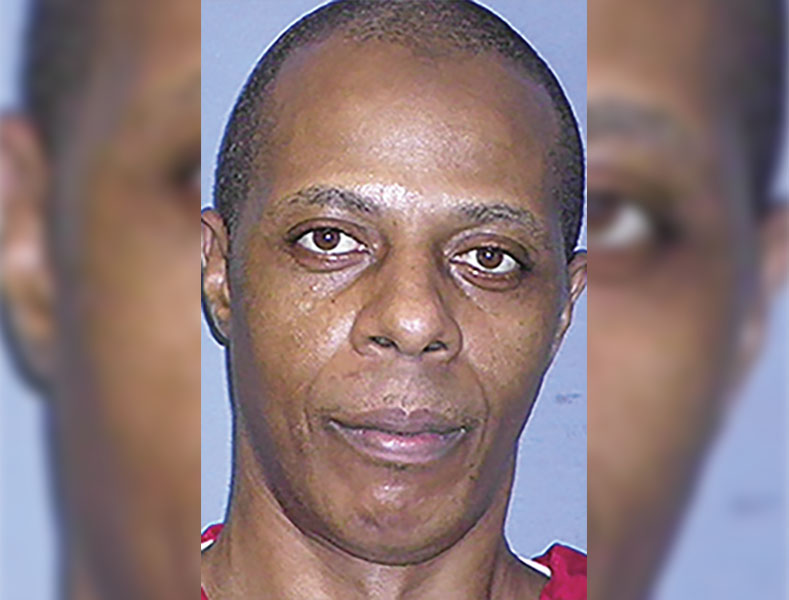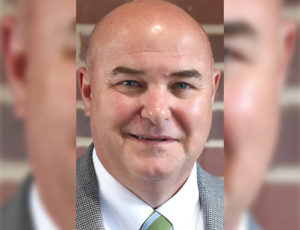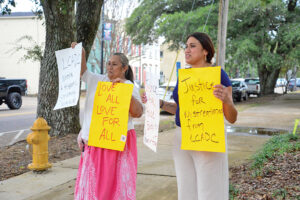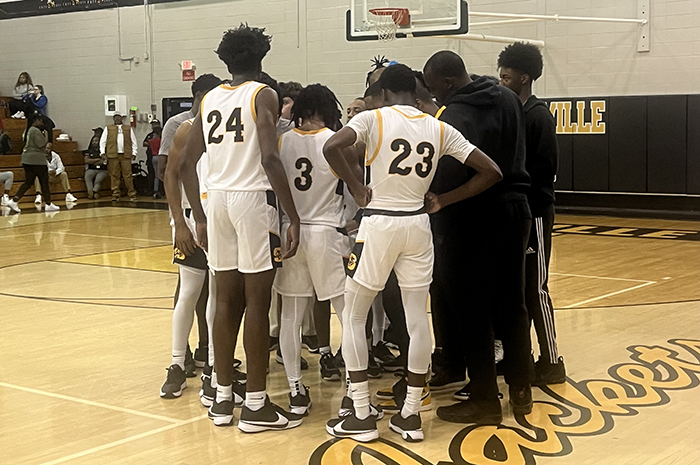Despite the Mississippi Supreme Court preventing Willie Jerome “Fly” Manning from returning to court with an opinion issued in September, Manning’s defense is once again petitioning for a rehearing, this time with the support of a pair of civil rights organizations.
The Innocence Project, a national litigation and public policy organization dedicated to exonerating wrongfully convicted people through DNA testing and reforming the criminal justice system, and the American Civil Liberties Union, a national civil rights nonprofit, filed amicus briefs Monday and Tuesday to support Manning receiving a rehearing in his 30-year-old double homicide conviction.
Manning was convicted in 1994 of the murders of Jon Steckler and Tiffany Miller, two Mississippi State University students, that occurred two years earlier.
According to trial testimony, Manning allegedly kidnapped Miller and Stickler. He then allegedly shot Steckler and ran him over with his car, then raped and murdered Miller.
While Manning was convicted and sentenced to death in 1994, he was granted a stay of execution in 2013, just four hours before he was set to die.
Attorney General Lynn Fitch’s office filed a motion last November to lift that stay of execution order. The defense filed a motion by the end of that month, arguing new evidence undermining the case against Manning had come to light and he should be allowed to return to court.
Earl Jordan, a jailhouse informant who testified Manning confessed to him, recanted his testimony in a signed affidavit last year. Another key witness, Henry Richardson, has also claimed that he and Manning never discussed details of the crime, despite previous testimony to the contrary, the defense wrote.
The defense also argued ballistic evidence needed to be reassessed because it has since been discredited by scientific advances. At trial, evidence included slugs dug from a tree in Manning’s yard that forensically linked him to the murder weapon.
The Supreme Court issued a 5-4 majority opinion Sept. 16 that denied Manning leave to proceed in circuit court or to file other petitions for post-conviction relief, partially because some of the “new” evidence was included in a prior petition for relief in 2013.
“Petitioner has had more than a full measure of justice,” the opinion reads. “Tiffany Miller and Jon Steckler have not. Their families have not. The citizens of Mississippi have not. Finality of justice is of great import in all cases.”
A minority opinion issued the same day says that Manning is entitled to an evidentiary hearing, as Manning was denied relief in 2013 because the defense failed to present any “competent evidence” Jordan recanted his testimony.
Despite the results of that ruling, the defense then filed a motion for rehearing on Oct. 30, claiming that the court did not consider the totality of the new evidence, but instead considered each piece individually. The motion claims that together, the evidence shows Manning’s trial was unreliable.
Fitch’s office filed a response the next day calling for the court to deny Manning’s motion for rehearing and to set his execution date, claiming that the motion for rehearing “raises nothing new.”
By Monday, the Innocence Project filed a letter with the court supporting a new hearing. It argues that elements involved in Manning’s case, including the testimony of a jailhouse informant, firearm toolmark identification, hair microscopy and prosecutorial misconduct, have previously led to wrongful convictions nationally and in Mississippi.
“Any capital conviction resting on evidence known to cause wrongful convictions requires careful scrutiny,” the letter reads. “Here, such scrutiny is all the more urgent, since (Manning’s) conviction was secured in a jurisdiction plagued by an astonishing number of wrongful convictions and mirrors three cases of innocence litigated by the IP and MS IP.”
The following day, the ACLU filed an amicus brief in support of Manning, claiming that Manning was wrongfully convicted as a part of a “tragic pattern” for Black defendants in America.
The brief claims that false testimony presented in the trial, improper elimination of Black jurors and racial discrimination in the use of peremptory strikes all primed Manning’s trial to end in his conviction. It argues that the court should grant Manning’s motion for rehearing.
“Mr. Manning never stood a chance to prove his innocence even before he entered a courtroom,” the motion reads. “The prosecution used every tool, except a fair trial, to create the perfect environment for the jury to convict Manning.”
The ACLU brings up another case in which Manning was also sentenced to death. Manning was convicted and sentenced to death in a separate trial for the 1993 murders of Emmoline Jimmerson and her daughter, Albertha Jordan. That conviction was overturned in 2015, and the charges dropped, after a jailhouse informant recanted his testimony and the court discovered that exculpatory evidence had been withheld by investigators.
You can help your community
Quality, in-depth journalism is essential to a healthy community. The Dispatch brings you the most complete reporting and insightful commentary in the Golden Triangle, but we need your help to continue our efforts. In the past week, our reporters have posted 46 articles to cdispatch.com. Please consider subscribing to our website for only $2.30 per week to help support local journalism and our community.








